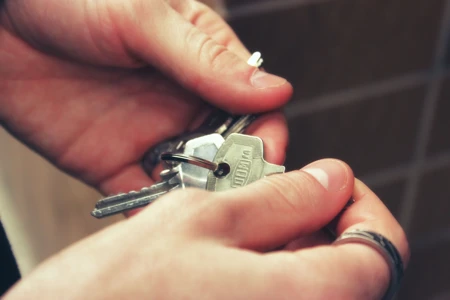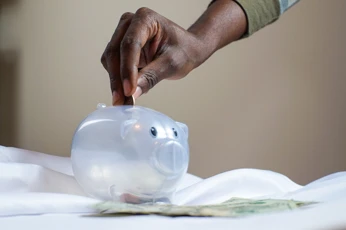 Written by: Danny Belton - Head of Lending
Written by: Danny Belton - Head of Lending
So, is going it alone the right choice for you? Here's a breakdown of the key factors to consider:
Financial considerations
When buying a house solo, it’s important to make sure that you have all aspects of the financial side covered. If you don’t prepare for all financial possibilities, it’s likely you will face additional hurdles along the way.
Affordability
This is paramount. Single buyers will typically have a lower income-to-debt ratio compared to couples, limiting their borrowing power. Be realistic about the property types and locations within your budget. A mortgage adviser will be able to help give you a sense of what you can afford.
Deposit
Saving for a deposit can be a long-term journey. Explore options such as the government’s Mortgage Guarantee scheme or consider family assistance - if possible.
Ongoing costs
Remember, your mortgage repayments are just one piece of the puzzle. Factor in property taxes, maintenance, utilities, and potential repairs - all expenses you'll take on solo.
Lifestyle considerations
In addition to having the financial aspects of buying a house on your own sorted, it’s also vital to consider how it may change your lifestyle. There are pros and cons to everything in life, and buying a house on your own is no different.
Independence
Buying alone offers complete control over your living space and decisions. You get to personalise your home and enjoy the freedom of being your own landlord!
Responsibility
Managing a home single-handedly can be demanding. Consider your comfort level with maintenance tasks, working on the property’s exterior, and dealing with tradespeople. If you enjoy DIY this is a great time to play, but there are plenty of resources out there to help you live out your Grand Design dreams.
Long-term plans
If you can see yourself starting a family or having a lodger in the future, factor in the suitability of the property for a larger household. It may work for you now, but does it take into account future plans?
Alternatives to consider
If you have concerns about owning a house outright ,here are some alternatives to consider while still getting yourself on the property ladder.
Shared Ownership
This scheme allows you to purchase a share of a property, gradually increasing your ownership over time while paying rent on the share of the property you do not own. Keep in mind that selling a Shared Ownership property has its own challenges, so do your research before diving in.
Co-living
Sharing a larger property with like-minded individuals, friends, or family can offer greater affordability and a sense of community. This also reduces the costs of getting a mortgage solo.
Seeking expert guidance
A mortgage adviser plays a crucial role in navigating the fine details of homeownership. They can assess your financial situation, recommend suitable mortgage options, and guide you through the entire process.
Ultimately, the decision to buy a house on your own is personal. Weigh the pros and cons carefully, seek professional advice, and make sure it aligns with your financial goals and lifestyle aspirations. Remember, solo homeownership can be a rewarding journey, offering independence, security, and a place to call your own.
Important information
Your home may be repossessed if you do not keep up repayments on your mortgage.
There may be a fee for mortgage advice. The actual amount you pay will depend on your circumstances. The fee is up to 1% but a typical fee is 0.3% of the amount borrowed.




